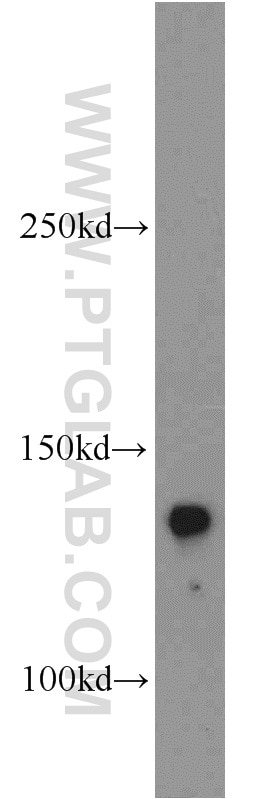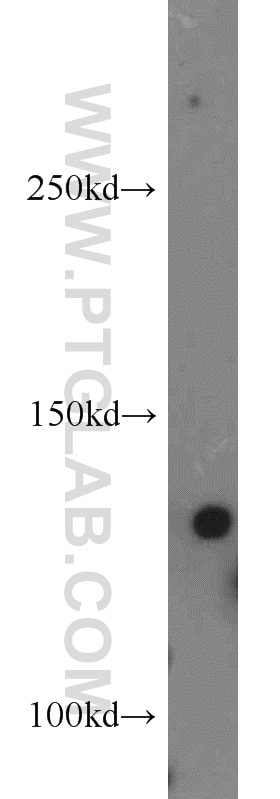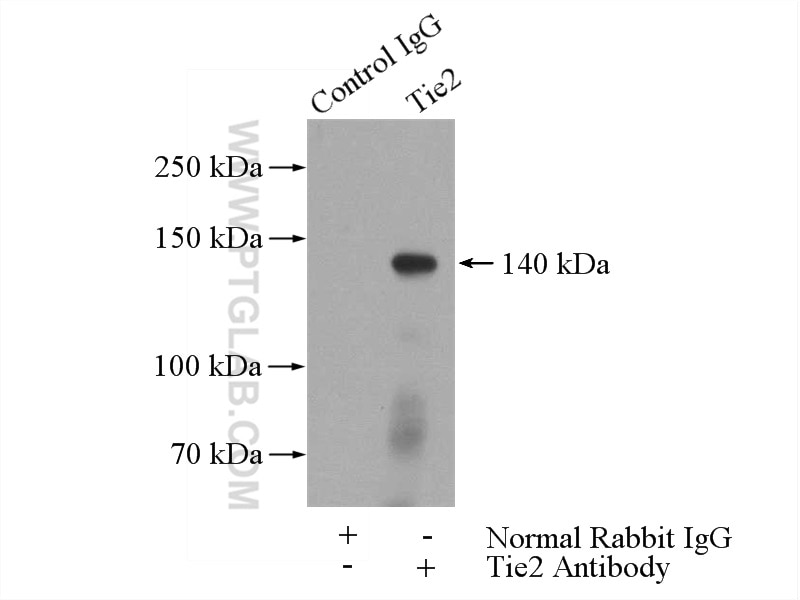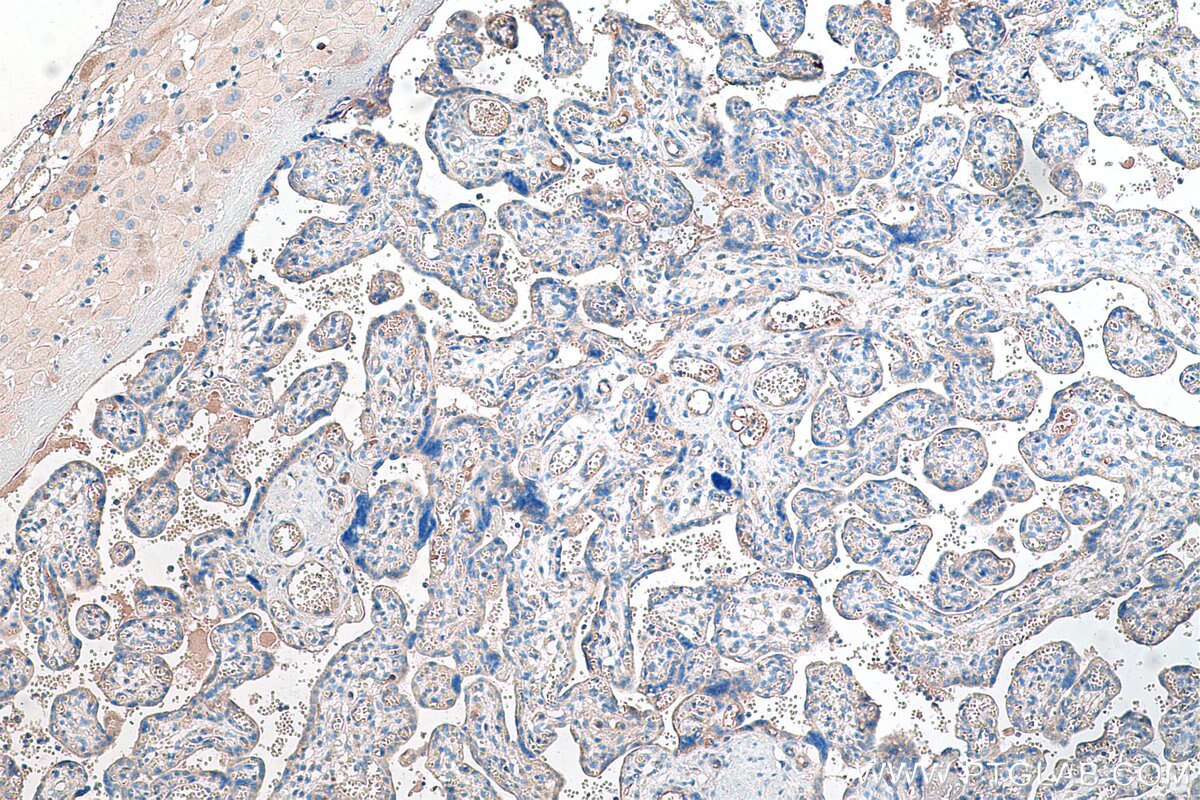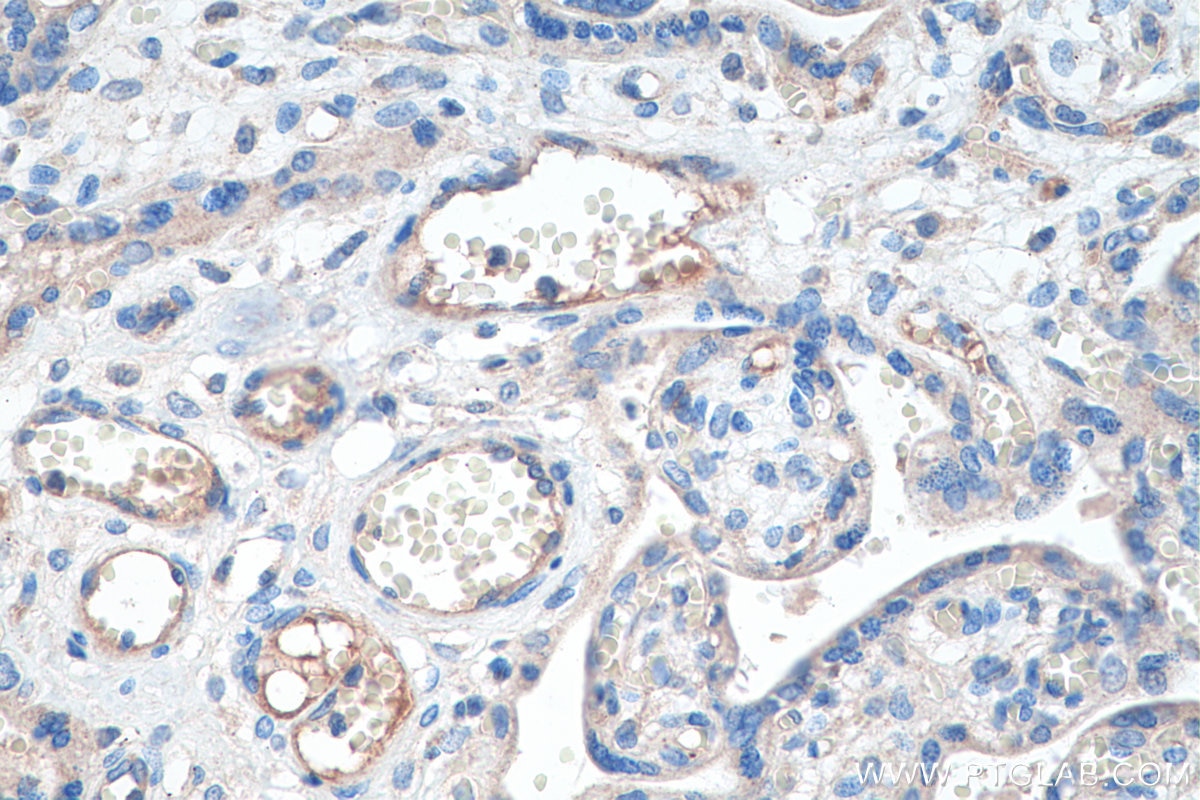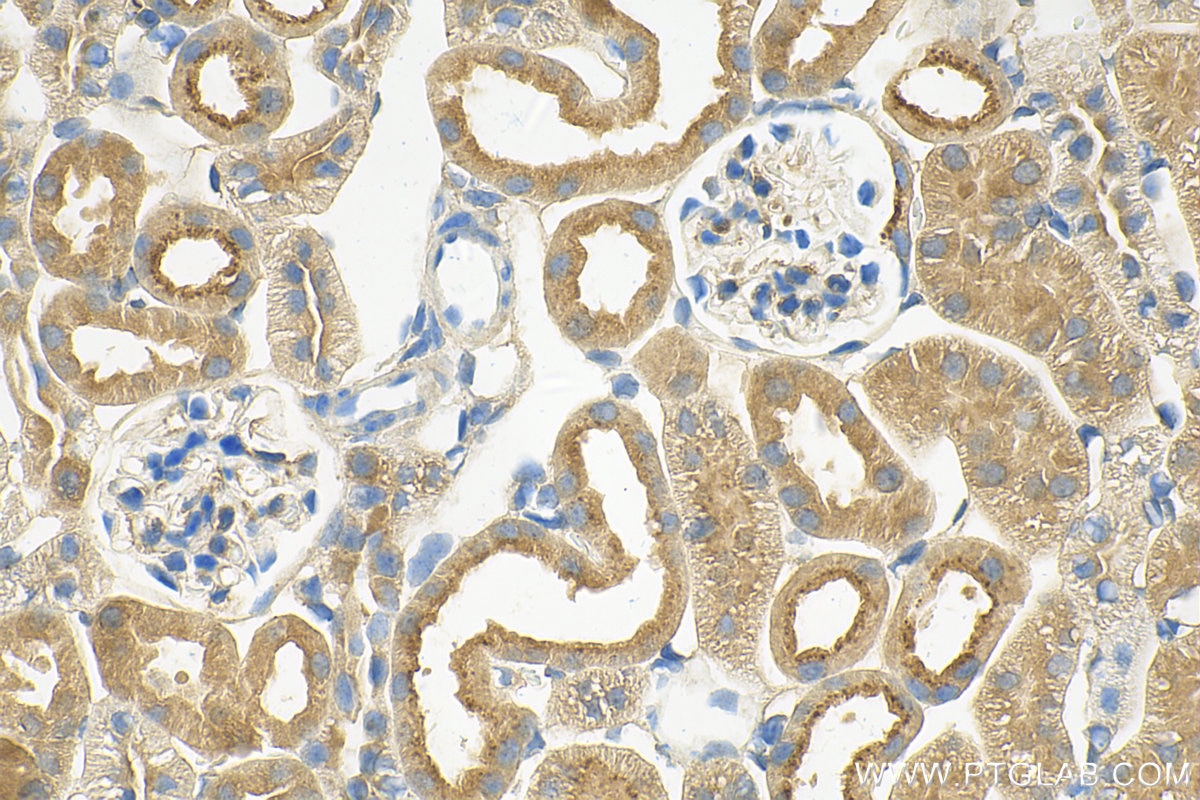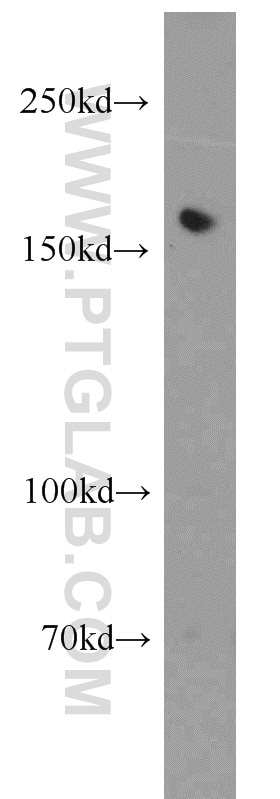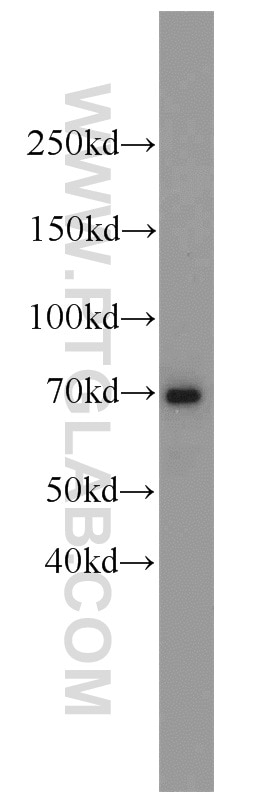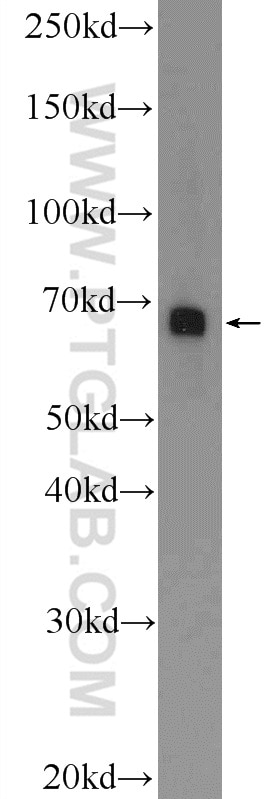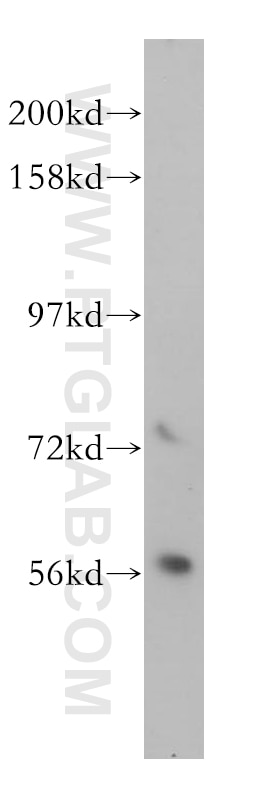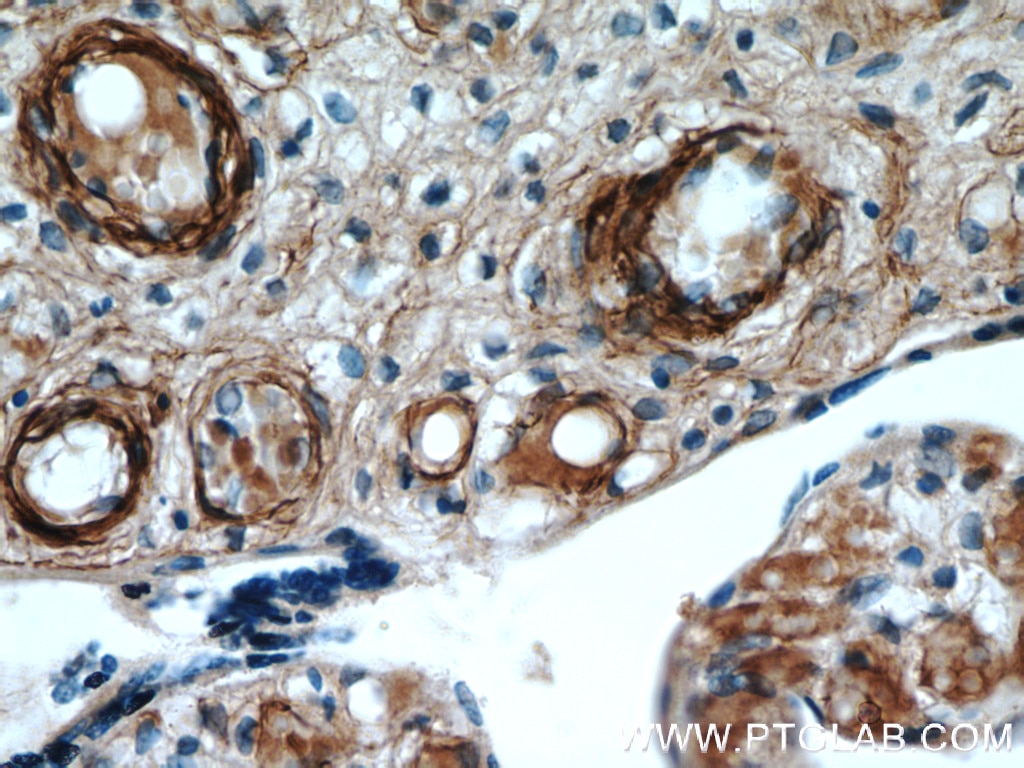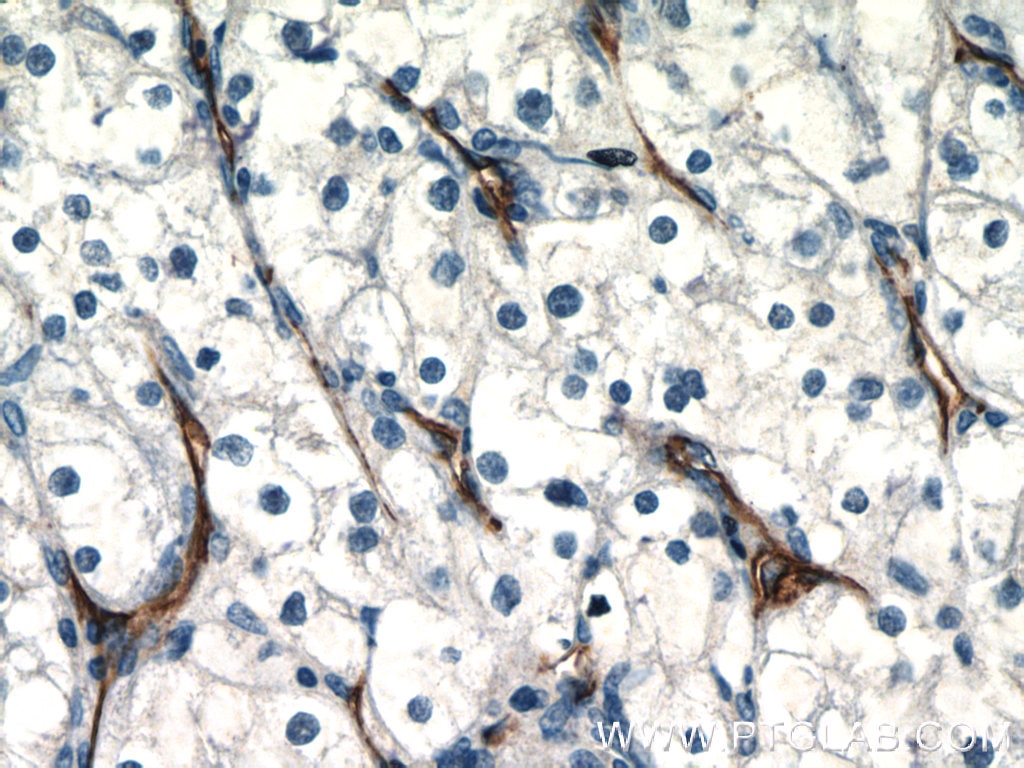Anticorps Polyclonal de lapin anti-Tie2
Tie2 Polyclonal Antibody for WB, IP, IHC, ELISA
Hôte / Isotype
Lapin / IgG
Réactivité testée
Humain, rat, souris
Applications
WB, IP, IF, IHC, ELISA
Conjugaison
Non conjugué
N° de cat : 19157-1-AP
Synonymes
Galerie de données de validation
Applications testées
| Résultats positifs en WB | tissu pulmonaire de souris, tissu hépatique de souris |
| Résultats positifs en IP | tissu pulmonaire de souris, |
| Résultats positifs en IHC | tissu placentaire humain, tissu rénal de souris il est suggéré de démasquer l'antigène avec un tampon de TE buffer pH 9.0; (*) À défaut, 'le démasquage de l'antigène peut être 'effectué avec un tampon citrate pH 6,0. |
Dilution recommandée
| Application | Dilution |
|---|---|
| Western Blot (WB) | WB : 1:500-1:2000 |
| Immunoprécipitation (IP) | IP : 0.5-4.0 ug for 1.0-3.0 mg of total protein lysate |
| Immunohistochimie (IHC) | IHC : 1:1000-1:4000 |
| It is recommended that this reagent should be titrated in each testing system to obtain optimal results. | |
| Sample-dependent, check data in validation data gallery | |
Applications publiées
| WB | See 12 publications below |
| IHC | See 3 publications below |
| IF | See 2 publications below |
Informations sur le produit
19157-1-AP cible Tie2 dans les applications de WB, IP, IF, IHC, ELISA et montre une réactivité avec des échantillons Humain, rat, souris
| Réactivité | Humain, rat, souris |
| Réactivité citée | rat, Humain, souris |
| Hôte / Isotype | Lapin / IgG |
| Clonalité | Polyclonal |
| Type | Anticorps |
| Immunogène | Tie2 Protéine recombinante Ag13523 |
| Nom complet | TEK tyrosine kinase, endothelial |
| Masse moléculaire calculée | 1124 aa, 126 kDa |
| Poids moléculaire observé | 140 kDa |
| Numéro d’acquisition GenBank | BC035514 |
| Symbole du gène | Tie2 |
| Identification du gène (NCBI) | 7010 |
| Conjugaison | Non conjugué |
| Forme | Liquide |
| Méthode de purification | Purification par affinité contre l'antigène |
| Tampon de stockage | PBS avec azoture de sodium à 0,02 % et glycérol à 50 % pH 7,3 |
| Conditions de stockage | Stocker à -20°C. Stable pendant un an après l'expédition. L'aliquotage n'est pas nécessaire pour le stockage à -20oC Les 20ul contiennent 0,1% de BSA. |
Informations générales
Tie2 (also known as TEK) is a tyrosine-protein kinase expressed almost exclusively on endothelial cells. It contains two immunoglobulin-like domains, three epidermal growth factor (EGF)--like domains and three fibronectin type III repeats. Tie2 acts as a cell-surface receptor for ANGPT1, ANGPT2, and ANGPT4 and regulates angiogenesis, endothelial cell survival, proliferation, migration, adhesion and cell spreading, reorganization of the actin cytoskeleton, but also maintenance of vascular quiescence. Mutations in the gene Tie2 are associated with inherited venous malformations of the skin and mucous membranes. Human Tie2 has a calculated molecular weight of 126 kDa. As a result of glycosylation, the apparent molecular mass of Tie2 is approximately 140-160 kDa.
Protocole
| Product Specific Protocols | |
|---|---|
| WB protocol for Tie2 antibody 19157-1-AP | Download protocol |
| IHC protocol for Tie2 antibody 19157-1-AP | Download protocol |
| IP protocol for Tie2 antibody 19157-1-AP | Download protocol |
| Standard Protocols | |
|---|---|
| Click here to view our Standard Protocols |
Publications
| Species | Application | Title |
|---|---|---|
Ther Adv Med Oncol Development and external validation of a composite immune-clinical prognostic model associated with EGFR mutation in East-Asian patients with lung adenocarcinoma. | ||
Mol Cancer Ther JQ1 induces DNA damage and apoptosis, and inhibits tumor growth in a patient-derived xenograft model of cholangiocarcinoma. | ||
Front Cell Dev Biol Inhibiting Heat Shock Protein 90 Protects Nucleus Pulposus-Derived Stem/Progenitor Cells From Compression-Induced Necroptosis and Apoptosis. | ||
Stem Cell Res Ther Human endometrium-derived stem cell improves cardiac function after myocardial ischemic injury by enhancing angiogenesis and myocardial metabolism. | ||
Stem Cell Res Ther MicroRNA-9 modified bone marrow-derived mesenchymal stem cells (BMSCs) repair severe acute pancreatitis (SAP) via inducing angiogenesis in rats. | ||
J Mol Cell Cardiol BMP9 attenuates occurrence of venous malformation by maintaining endothelial quiescence and strengthening vessel walls via SMAD1/5/ID1/α-SMA pathway. |
